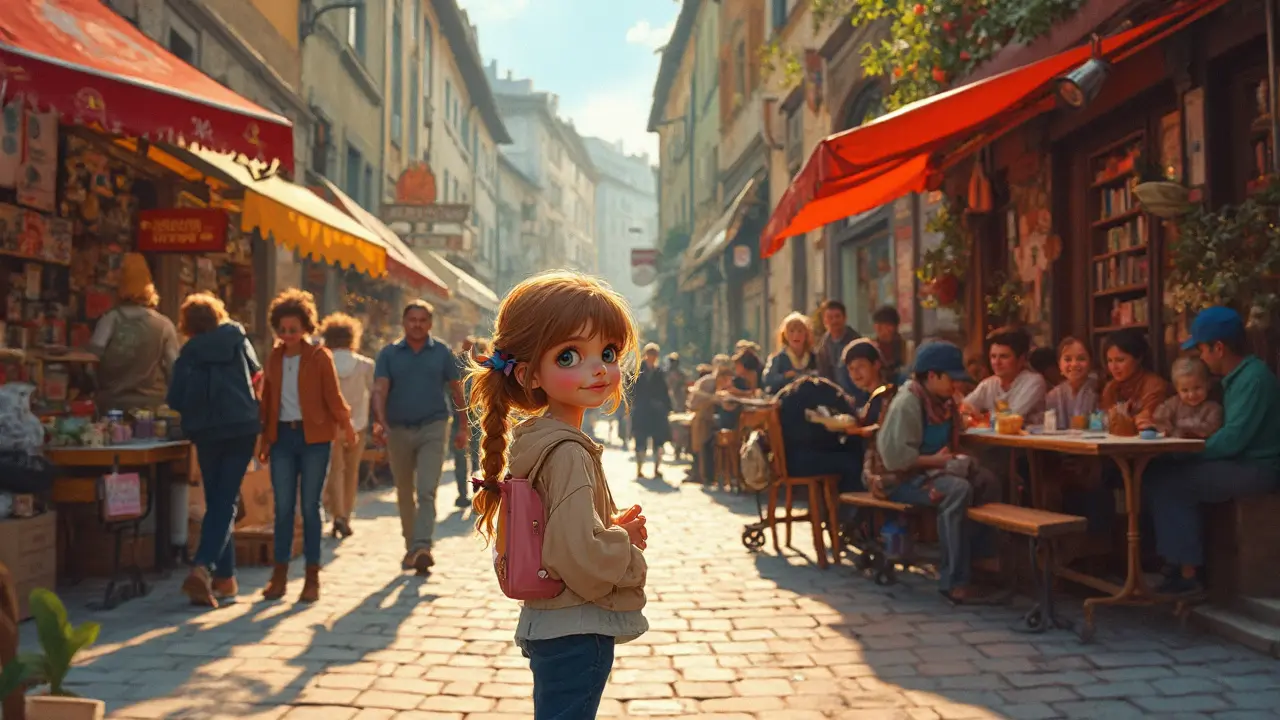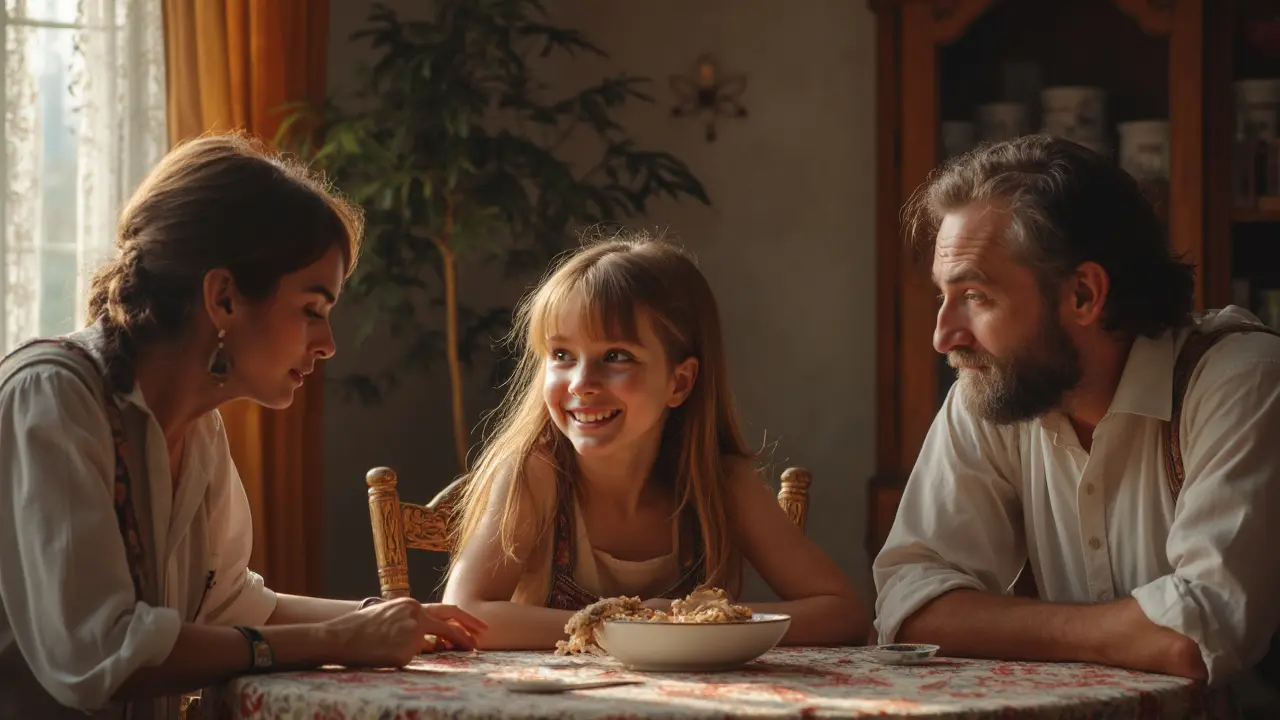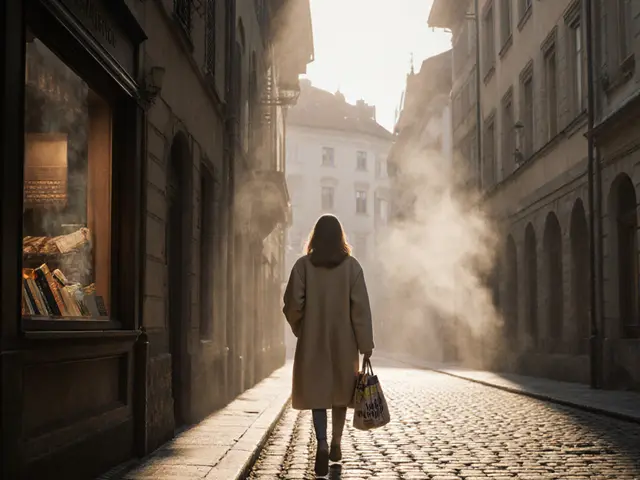Katja Kassin’s Munich Roots: Inside the Star’s Origin Story

- Maximilian Von Stauffenberg
- 15 May 2025
- 0 Comments
When you think of Katja Kassin, you probably picture her as a big name in adult entertainment. But few know she got her start in the winding streets and busy squares of Munich. Her story isn’t just about stardom—it’s about how growing up in Munich played a part in shaping who she is and how she made it in a tough industry.
Munich isn’t only beer halls and Oktoberfest. For Katja, it was a real city with pressure, hopes, and plenty of chances to get creative. Knowing where she grew up gives some needed context: Munich has this mix of old school tradition and modern edge. If you ever wondered why she stands out, look at where she came from. The city turns out free thinkers with a DIY spirit. For anyone looking to follow a unique path, there are lessons hidden in Katja's roots—like how grit, curiosity, and an open mind can help you grab the future you want, no matter where you begin.
- Munich Beginnings: Where It All Started
- Family Life and Early Influences
- The City’s Culture and Its Mark
- Katja’s Journey Before Stardom
- What Makes Munich Unique for Dreamers
- Tips for Exploring Katja’s Hometown
Munich Beginnings: Where It All Started
Katja Kassin was born in Munich, Germany, in 1979. Munich isn’t just a tourist hotspot—it’s a place where old traditions rub up against modern ideas. Katja grew up in the city’s western neighborhoods, not far from the famous Nymphenburg Palace, soaking in a mix of history, culture, and everyday city life. Her parents worked standard jobs, her dad in engineering and her mom in educational support, giving her a pretty regular upbringing by local standards. In interviews, Katja has often talked about feeling both the comfort and the pressure of living in a city that always aims high.
In 2004, Katja shared with the magazine Szene München:
“Growing up in Munich, you can’t help but feel like you’re expected to do something big with your life. There’s opportunity everywhere, but you really need to find your lane.”
Munich is home to over 1.5 million people and has one of the highest standards of living in Germany. For young people like Katja, that meant tons of options—music scenes, art, wild nightlife, and great public transit. No matter your dream, there was a way to chase it.
Check out how Munich stacks up for young adults:
| Stat | Detail |
|---|---|
| Population (approx.) | 1.56 million |
| Average monthly rent (1br city center) | €1,300 |
| Public transit users | 70% of residents |
| Average age | 41.2 years |
All these factors—the supportive but ambitious family, the culture-heavy city, and the sense that you should “make something of yourself”—ended up being the fuel Katja used later in her career. If you’re thinking of making a big move in your life, it’s worth remembering that your hometown can both push you and prepare you, just like Munich did for Katja Kassin.
Family Life and Early Influences
Katja Kassin didn’t come from celebrity parents or a wealthy background. Born and raised in Munich in the late 1970s, Katja grew up in a middle-class neighborhood. Her family, like many in Germany, valued steady routines and encouraged her to stick with school, but they were pretty open-minded compared to some of their neighbors. Home life wasn’t fancy, but it was stable—her parents both worked, and family dinners were a regular thing. That grounding came in handy when she was figuring out what she wanted from life.
Katja often mentioned her parents’ attitude was “strict but fair.” In interviews, she’s talked about how they let her make her own mistakes, which probably explains her confident, take-charge attitude later on. She sometimes felt out of place in a city that leans conservative, but that only made her more determined to follow her own path. A 2018 interview with the German outlet Bild quoted her saying:
“My parents expected me to finish school and get a normal job, but they always said that happiness comes first. That stuck with me, even when my choices surprised them.”
Growing up in Munich during the ‘80s and early ‘90s, Katja soaked up a little bit of everything. Media was changing, the Berlin Wall fell, and attitudes were shifting. She got interested in movies, subcultures, and new ideas. Still, family habits stuck with her. For instance, she’s known to be serious about healthy boundaries and always credits her parents for that.
| Fact | Details |
|---|---|
| Birthplace | Munich, Germany |
| Education | Completed secondary school in Munich |
| Key Family Value | Independence and responsibility |
| Era | Late 1970s-1990s |
All this shows Katja Kassin had a solid foundation before her career took off. She learned early on to stand up for herself but kept her family close, a balance that shows up in how she handles public attention and personal boundaries today. For anyone curious about her drive and mindset, her Munich upbringing explains a lot.
The City’s Culture and Its Mark
Munich isn’t just a tourist stop in Bavaria—it’s a powerhouse in German culture, and that’s a big deal when you’re talking about how it shapes people like Katja Kassin. Growing up in Munich means growing up somewhere that blends deep traditions with a push for modern ideas. It’s a city where high school kids can go from classical music concerts to open-air hip hop parties in the same weekend. That kind of variety changes how you see what’s possible.
The art scene in Munich is strong. Actually, German surveys from 2023 show that about 30% of young adults in the city are connected to music, theater, or design groups, either as a hobby or a side gig. This gives kids and teens tons of chances to get creative or test boundaries—and Katja would have been right in the middle of that.
Munich also cares a lot about education and tech, with world-class universities and media schools. It’s not odd for people to know someone studying filmmaking one day, and data science the next. If you’re curious or want to break norms, you find support there, not weird looks.
Here’s a look at what stands out about Munich’s city culture compared to other German cities:
| City | Average Cultural Events Per Year | No. of Art Students | Famous For |
|---|---|---|---|
| Munich | 19,000 | 15,000+ | Film, Modern Art |
| Berlin | 28,000 | 20,000+ | Startups, Nightlife |
| Hamburg | 13,000 | 8,500+ | Music, Theatres |
What really makes Munich unique is the way people are encouraged to mix old and new. Oktoberfest pulls in millions, but the city’s student districts talk about everything from women’s rights to digital art. That balance between history and trying new things can trigger someone to go down a non-traditional path—just like Katja did.
If you’re in Munich or plan to visit, check out places like the Gärtnerplatzviertel for quirky fashion, or the Museum Brandhorst if you’re interested in out-there art. No matter what path you want to take, Munich’s mix of old roots and new ideas can give anyone a jumpstart—if you use it.

Katja’s Journey Before Stardom
Before Katja Kassin became a major name in adult films, her life in Munich was all about finding her own lane. Born in 1979, she spent her childhood and early teen years soaking up the city’s mix of old and new. She wasn’t just sitting still—she studied hard, got involved in local youth culture, and picked up an early interest in theater and the arts. Her strong German work ethic started early, thanks in part to her family’s focus on education and independence.
One thing that stood out about Katja was how she didn’t shy away from taking risks. After high school, she tried a few different jobs, bouncing around the massive Munich job market. She worked as a waitress, held clerical gigs, and even spent some time in retail. All the while, she stayed connected to Munich’s art scene, which is home to tons of small theaters, galleries, and alternative venues. That gave her an edge in creativity and confidence, keys for anyone hoping to stand out.
It wasn’t all easy. Living in a city like Munich, where tradition meets rebellion, Katja saw lots of examples of people breaking the mold. Maybe that’s why she felt comfortable taking a risk on a totally different career path. At age 21, she made her first moves into adult entertainment. Her decision wasn’t some wild leap—it was a mix of financial pressure, wanting independence, and just being plain curious. She quickly picked up attention in Germany’s competitive scene, showing up in local media and soon heading to the U.S., where her career really took off.
To put her journey in context, here’s a quick look at some facts from her pre-stardom life in Munich:
| Fact | Detail |
|---|---|
| Year of Birth | 1979 |
| First Adult Film Appearance | 2000 (age 21) |
| Pre-industry Jobs | Waitress, retail, office clerk |
| Main City of Upbringing | Munich |
| Early Interests | Theater, visual arts |
If you’re thinking about changing your life path or even just moving to a new city, Katja’s story shows how skills like resilience, adaptability, and a bit of grit make a difference. She made the most of what Munich gave her, adding life skills to her resume before she ever made headlines.
What Makes Munich Unique for Dreamers
Munich isn’t just famous for Oktoberfest and football—this city has a way of shaping people who want to stand out. Just ask Katja Kassin. It’s not only the postcard looks; it’s how Munich treats anyone with big ideas and the guts to chase them.
For starters, Munich is packed with creative energy. Over 100,000 students live here, so the city is young and buzzing. Universities like LMU Munich and the Academy of Fine Arts toss you right into a mix of tech, art, and media. That means if you’re a dreamer, you’re never really alone. There’s always a group, a meetup, or a hangout for just about every interest—music, film, weird inventions, you name it.
The city backs up its creative talk with real support. München's film and television industry is the largest in Germany outside Berlin. A local media fund, FFF Bayern, invests millions of euros each year to support up-and-coming filmmakers and digital creators. Getting noticed isn’t impossible here—it’s part of the culture to hustle and try your ideas out loud.
Plus, Munich’s mix of old Bavarian values with international flair draws all kinds of people. While the city is known for tradition, it also makes room for outsiders and risk-takers. You see this in local cafés, co-working spaces, and tech startups, where everyone’s background adds something fresh.
Want hard numbers?
| Fact | How It Helps Dreamers |
|---|---|
| Over 25% of Munich’s population is foreign-born | Brings lots of new ideas and influences |
| Unemployment rate is consistently around 4% | A healthy local economy opens doors |
| 60+ annual film, music, and tech festivals | Plenty of chances to network and show new work |
If you’re thinking about starting something new, Munich’s system almost begs you to go for it. There are government backing, scholarships, mentorships, and even public classes on media production. The transit system is also key—easy trams and trains mean it’s hard to feel stuck, both literally and in your head.
No surprise, then, that people like Katja—not afraid to step out of line—find their strengths here. If you’ve got an idea burning in your brain, this is the kind of place that helps you see it through, even if it’s off the usual track.
Tips for Exploring Katja’s Hometown
Munich’s got way more to offer than most people realize. If you’re curious about the city that shaped Katja Kassin, you’re in for a treat—and maybe a few surprises too. Don’t just head for the postcard spots. Dig a little deeper and you’ll find why this place leaves a mark on anyone who grows up here.
First off, Munich’s public transit is a lifesaver. The U-Bahn and S-Bahn run on time, tickets are easy to grab from vending machines, and most main sights are just a few stops apart. Never rented a bike, scooter, or e-bike? Munich’s got plenty, and cycling through the English Garden is one of those “just do it” experiences, especially if you want to blend in with locals.
Here are some practical moves for making the most of your München visit:
- English Garden: It’s bigger than Central Park and locals love it for a reason—picnics, river surfing on the Eisbach, or just hanging by the beer gardens. Looking for a chill spot to people watch? Find a table by the Chinesischer Turm.
- Gärtnerplatz: Katja’s generation loved this spot. It’s got indie cafes, street musicians, and a nightlife vibe without the overkill. Real Munich energy here—creative, a little bit offbeat, and always lively.
- Viktualienmarkt: Fresh foods, fun market stalls, street food—this is where locals head for lunch or tasty treats. It’s also a good spot to pick up authentic Bavarian gifts to take home.
- Munich’s Museums: Don’t skip them. The Deutsches Museum does science in a very hands-on way, and the Pinakothek museums are world-class for art lovers.
- Augustiner Bräustuben: Way more chill than Hofbräuhaus, and you’ll actually find Munich-born folks here. The food is solid and you can try classic Bavarian brews away from the tourist crowds.
If you’re a stat person, the table below gives a quick look at the essentials:
| Top Munich Spot | Entry Cost (EUR) | Best Time to Visit |
|---|---|---|
| English Garden | Free | April–September |
| Viktualienmarkt | Free entry, food: 3–10 | Weekdays, mornings |
| Deutsches Museum | 16 adults | Weekdays, early afternoon |
| Augustiner Bräustuben | Main meals 10–20 | Evenings, weekends |
Last tip—learn to say "Servus!" (hello) and "Danke!" (thanks) with a smile. Locals appreciate it, even if you butcher the pronunciation. Don’t stress too much about blending in, though. Munich’s a city that welcomes curious visitors—just like it helped Katja Kassin find her way.

